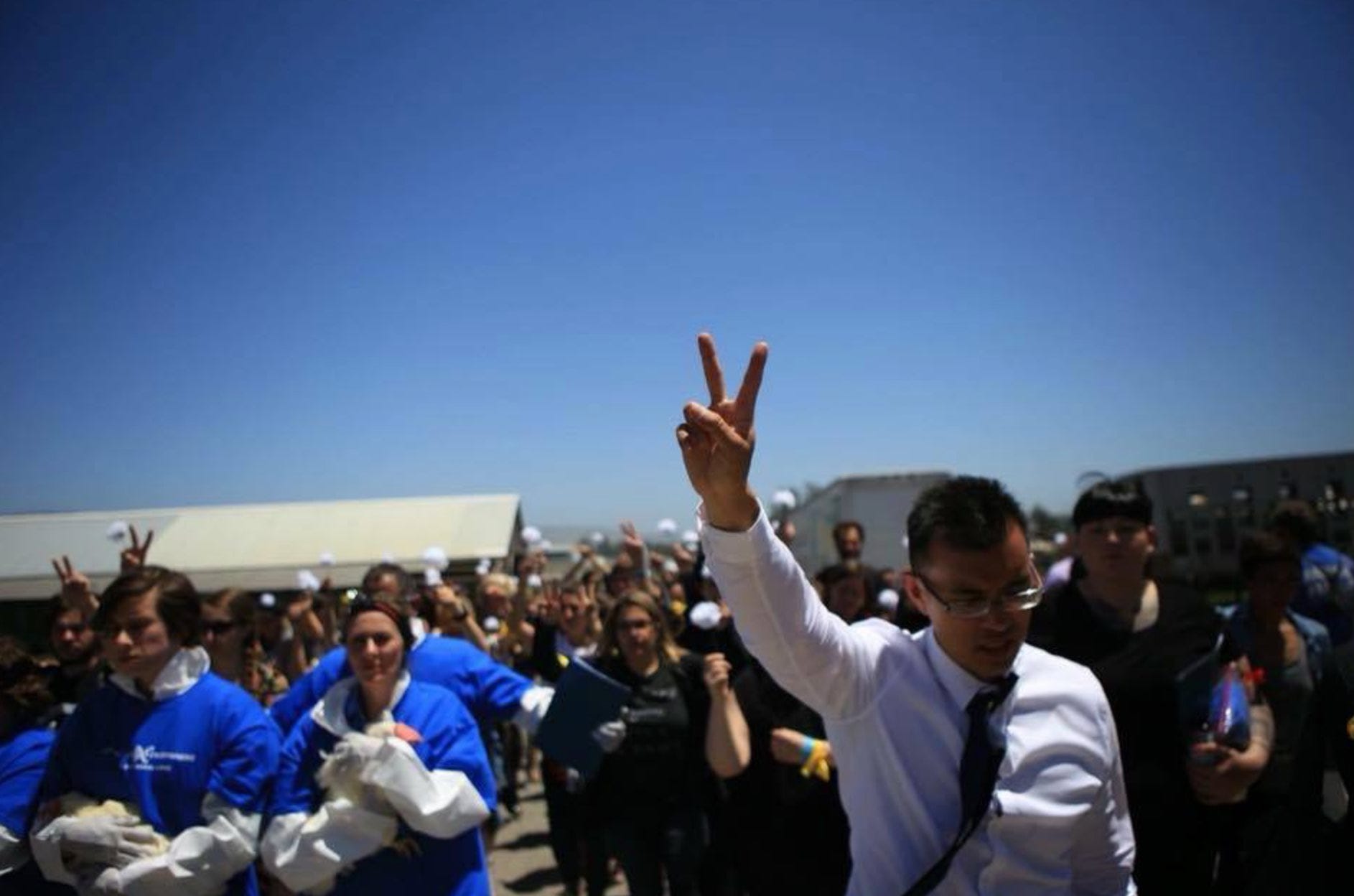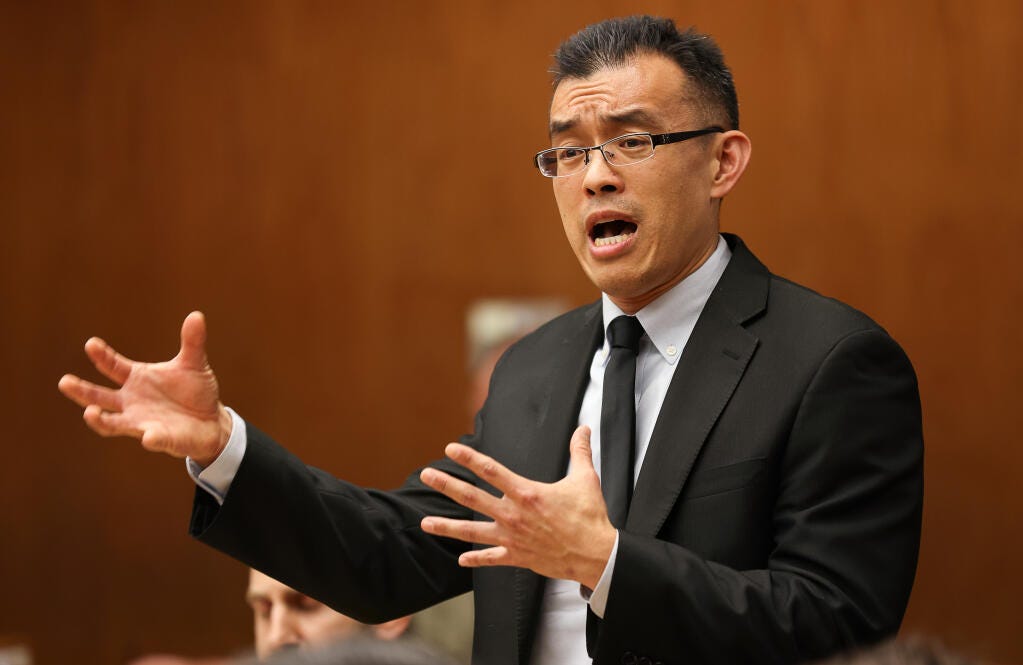|
In 2021, for the first time in the nation’s history, a majority of Americans indicated they were not members of a church or other place of worship. Religion is on the decline. It thus might seem quaint for me to offer today’s newsletter: a defense of faith. But my journey over the last 10 years has convinced me that organized faith — i.e, a shared commitment to ancient stories and values — is more important than ever. And the moment when my own government sought to imprison me showed me why.
On May 21, 2018, the government issued a felony arrest warrant after accusing me of “terrorism” for rescuing two dying piglets from the largest pig factory farm in the nation in Beaver County, Utah. The timing of the warrant, which threatened me with 60 years in prison, seemed intentional. The annual conference of grassroots animal rights activists was being held at the University of California, Berkeley on May 23. As a lawyer who has spent years defending the “right to rescue,” I was one of the keynote speakers. The government apparently believed that the warrant would deter other activists from exercising this right.
But they were wrong. On May 29, just days after the warrant was issued, 500 activists joined me in walking into one of the largest factory farms in California, Sunrise Farms in Sonoma County. Holding flowers in our hands, we rescued 37 dying animals and brought them into sunlight for the first time in their lives. Far from deterring us, the government’s actions inspired one of the largest acts of civil disobedience in animal rights history.
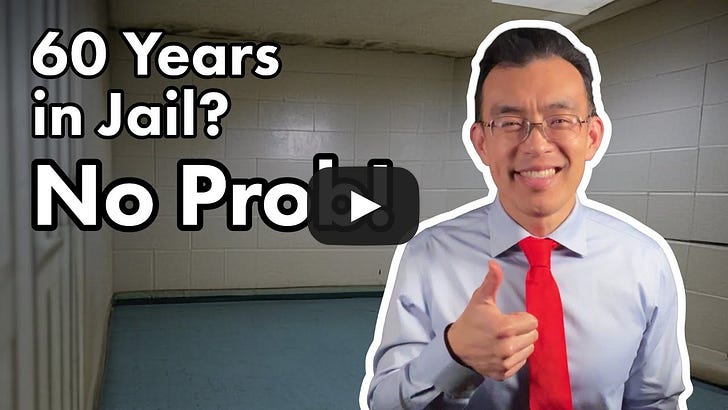
What did the government miss? The first factor was technology. Typically, the government controls the narrative when a defendant is charged. But, using a host of new technological platforms, along with data-driven methods I learned as a graduate student in economics, we were able to turn the government’s “terrorism” story into a different and more inspiring one: “Compassion is not a crime.” The second factor was our social network. A web of people concerned about animal suffering, from journalist Ezra Klein to philosopher Peter Singer, defended me after charges were filed. The government thought it was just prosecuting me; in fact, it was targeting a network of millions.
But the most important factor was faith. In lectures and workshops inspired by my ancestors’ Buddhist traditions, I had set out a vision for the right to rescue in the years leading up to the Sunrise demonstration. The people who walked with me into Sunrise were driven by a shared faith in that vision: a world where the broken creatures of this earth are cared for, rather than tormented. The sociologist Doug McAdam calls this “cognitive liberation,” i.e., a sense of collective hope that can drive movements to overcome seemingly insurmountable challenges. The government did not understand the power of this faith.
What I have realized in the years after the action, however, is that I missed something important, too. Faith cannot survive without a foundation. Dedicated activists, once eager to defend the right to rescue, were worn down and convinced to take plea bargains by years of hearings. Support groups that were once brimming with activity were emptied out by conflicts over hot-button political issues. By the time that my trials approached in 2022-2023, I was one of the last defendants standing. The faith that inspired the Sunrise action, the network that coalesced to support us, and the technology that multiplied our ability to bear witness… were all failing the test of time.
But there was one important exception: the church. Even as the movement ebbed, the Unitarian Universalist Society of San Francisco, a remarkable church with as many atheists as believers, was consistent and grounding. Every week, the church’s sanctuary, laden with ancient wood and names, reminded me of the sacrifices of abolitionists such as Rev. Thomas Starr King, who successfully fought to keep California in the Union in the 1860s. The church’s members shared stories of marching against wars or making forbidden love in corn fields. Their relationships were an embodiment of one of the most important findings of political science: a community cannot build a shared future unless it also has a shared past. The church’s mobilization to support me in the face of prosecution was a demonstration of commitment to that shared past and future.
In the years since Sunrise, I have become convinced that this kind of faith – a belief in ancient stories and values, and in future journeys together – is indispensable to not just social movements but perhaps the survival of our species. Religion is the most successful form of scalable human cooperation in history; indeed, it is arguably the only one. In an era where conflict is rising, a renewed emphasis on faith-based institutions may be the only solution for those who seek enduring peace.
But faith needs movements, too. Movements, rather than religions, have become the sources of transformation for so many across the world; baptism happens by protest. And movements adapt faster to new culture and technology than traditional faith-based institutions. There are lessons from movements that may benefit faith.
In short, to truly create change, we must understand the connection between movements and faith — and how technology facilitates (or blocks) that connection.
There is an important sense in which that has already been the mission of my life. When I left home to face the charges, my family cried, and my friends said good-bye. Eight rural, conservative jurors would decide my fate. But though our local attorneys described the situation as hopeless, I had faith. Our actions were motivated, not by anger or judgment, but by compassion and service. It was my job to teach, not just my fellow activists, but the jurors in the courtroom, of this truth.
“Your decision today, if you make the right one, will make the world a kinder place,” I explained to the jury, while showing them a video of Lily, a tiny piglet hobbling from a serious leg injury. She was slowly starving to death; I showed the jury how we nursed her back to life.
And the jury acquitted us of all charges. It was a moment of shared faith. Now we must understand how to create more such moments – across lines of race, religion, and even species – and build a foundation for a more enduring peace.
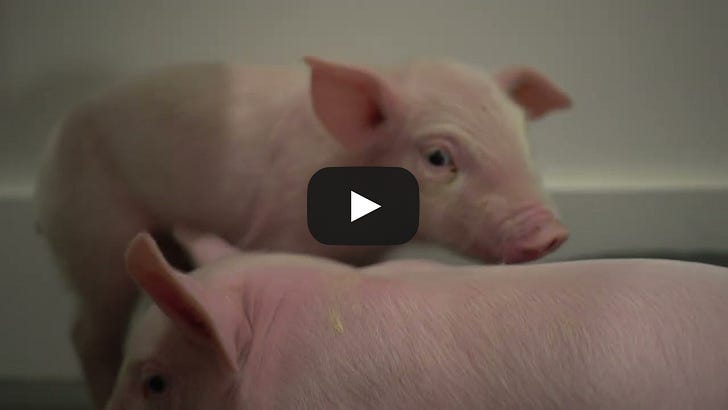
—
What’s up this week?
The future of this newsletter. I’ve gone back and forth on how much to invest in this newsletter. On the one hand, it’s been a great source of personal meaning, and I’ve gotten lots of great feedback from people like you. On the other hand, growth in subscribers has been slow and, increasingly, audiences are shifting to video. I apologize for not setting better expectations for how much I actually end up publishing. So let me set this new expectation: expect me to go back to (at least) weekly newsletters in 2025, with accompanying video content. Today’s newsletter, for example, is also being published with an accompanying podcast. And while I’ll continue to write about a wide range of subjects that interest me (and hopefully interest you, too), expect more focus on open rescue.
We’re hosting our next Open Rescue Advocates meeting this Sunday at 4 pm PT, and we’ll be discussing a new investigation and open rescue exposing the ties between Big Ag and Trump. There will be opportunities for you to be a part of shaping the narrative that could affect animals across the nation, as the Trump administration comes into office. Don’t miss it! Join online or in-person (in San Francisco). Here’s the link.
I’ve had a number of remarkable conversations on the podcast in the last month, but here are two of the most compelling. I spoke to James Aspey on his journey towards better health which (surprisingly) includes the use of steroids. If you are dealing with pain, or just trying to improve your energy level, this is a conversation you won’t want to miss.
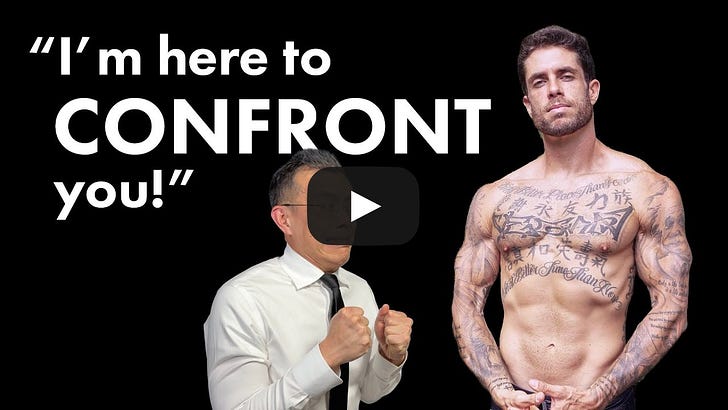
And I spoke to Richard Burgess, aka Vegan Gains, about a disagreement we’ve had for many years about #MeToo. Much to my surprise, I’ve found that there’s a surprising amount of common ground.
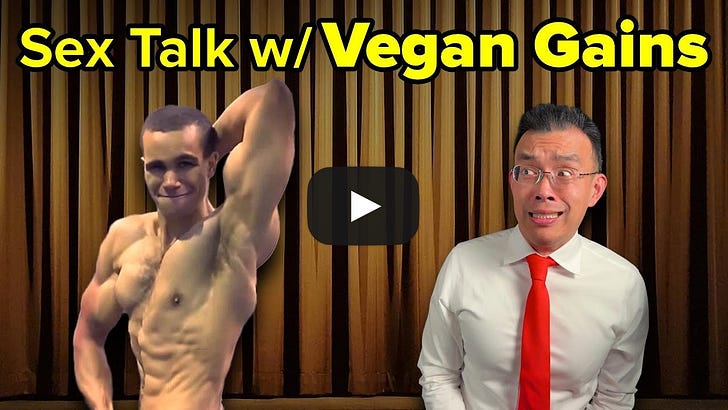
Both of these conversations are examples of another focus of this Substack and the podcast: having conversations that others are afraid to have.
Other resources for animal activists. My friend Constance has been doing some of the most effective community organizing for animal, and I want to share two spaces on Substack that I’d encourage you to join. See below!
AI for Animals. What role will AI play in shaping the future for animals? AI for Animals (AIA) explores this question with bold insights, research, and thought-provoking conversations for animal advocates. If you're curious about how AI could impact the fight for a better world for animals, this Substack is for you. Subscribe here.
Hive. Join a global network of over 3,000 advocates driving positive change for animals. Hive is more than just a Substack: it’s a dynamic community of animal advocates sharing actionable insights and providing the tools and resources needed to make a tangible difference. Stay informed with the latest updates on the movement, discover job opportunities, and connect with the people shaping a better future for animals across the globe. Subscribe here.
That’s all for this week. Until next time!
Thank you for reading The Simple Heart! To help us reach more people, become a donor today.
